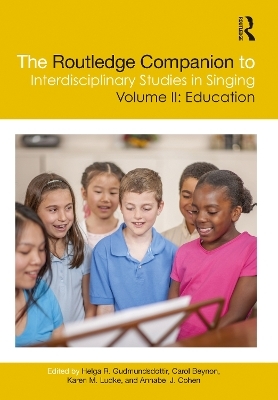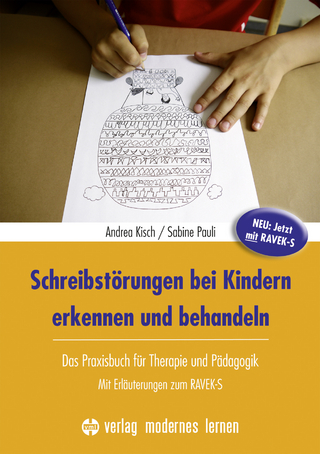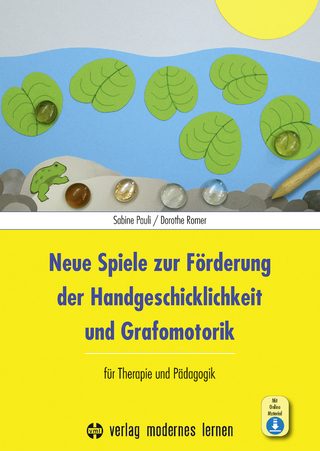
The Routledge Companion to Interdisciplinary Studies in Singing, Volume II: Education
Routledge (Verlag)
978-1-138-06114-9 (ISBN)
The Routledge Companion to Interdisciplinary Studies in Singing, Volume II: Education examines the many methods and motivations for vocal pedagogy, promoting singing not just as an art form arising from the musical instrument found within every individual but also as a means of communication with social, psychological, and didactic functions. Presenting research from myriad fields of study beyond music—including psychology, education, sociology, computer science, linguistics, physiology, and neuroscience—the contributors address singing in three parts:
Learning to Sing Naturally
Formal Teaching of Singing
Using Singing to Teach
In 2009, the Social Sciences and Humanities Research Council of Canada funded a seven-year major collaborative research initiative known as Advancing Interdisciplinary Research in Singing (AIRS). Together, global researchers from a broad range of disciplines addressed three challenging questions: How does singing develop in every human being? How should singing be taught and used to teach? How does singing impact wellbeing? Across three volumes, The Routledge Companion to Interdisciplinary Studies in Singing consolidates the findings of each of these three questions, defining the current state of theory and research in the field. Volume II: Education focuses on the second question and offers an invaluable resource for anyone who identifies as a singer, wishes to become a singer, works with singers, or is interested in the application of singing for the purposes of education.
Helga R. Gudmundsdottir is Professor of Music Education at the University of Iceland, School of Education. Carol Beynon is Professor Emerita at Western University and Senior Artistic Director of the Amabile Boys & Men’s Choirs of London, Canada. Karen Ludke is a Senior Lecturer in English Language at Edge Hill University, UK. Annabel J. Cohen is Professor of Psychology at the University of Prince Edward Island specializing in music cognition and is the initiator/director of the AIRS project.
Introduction: Singing and education: Learning to sing and singing to learn Helga Rut Gudmundsdottir, Carol Beynon, & Karen M. Ludke / Part I: Learning to Sing Naturally / 1. Learning to sing naturally Helga Rut Gudmundsdottir / 2. Informal singing practices of children: A theoretical review focusing on play theory and communication theory Matt Swanson / 3. Singing acquisition in the first years of life Helga Rut Gudmundsdottir / 4. Children learning to sing in everyday family life in minority world homes Susan Young & Bronya Dean / 5. The songs children sing: Music-theoretic analysis in the context of children's and classroom cultures Megan M. Purdue & Patricia Shehan Campbell / 6. Functions of singing and songs in the lives of Brazilian children Beatriz Ilari & Rogério Budasz / 7. Musical features and community thematic of selected children’s songs of the Wagogo people of Central Tanzania Kedmon Elisha Mapana / 8. Field recordings of children’s singing: An examination of Internet-based resources J. Christopher Roberts / 9. Singing through childhood: The role of song in girls’ initiation schools in Vhavenda communities, South Africa Andrea Emberly & Tondani Tshitokisi / 10. Singing in South African schools Thomas M. Pooley / 11. Vocal self-image of Chinese adults Esther Mang / 12. Adults learning traditional Icelandic vocal music in a semi-formal setting Kimberly Cannady / 13. Antecedents to the career of singer-songwriter as revealed by interviews and on-line surveys Annabel J. Cohen, Christopher Robison, Quincy Beck, & Michael Speelman / Part II: Formal Teaching of Singing / 14. The formal and non-formal teaching of singing in the studio and choral environment Carol Beynon / 15. Science-informed vocal pedagogy: Motor learning, deliberate practice and the challenge of cognitive dissonance Lynn Helding / 16. Interdisciplinary breath connections: Training singers using dance applications Darryl Edwards & Jennifer Swan / 17. Using the International Phonetic Alphabet as a tool to teach singing Pilar Lirio / 18. Multimodal analysis of Indian vocal music training Hans F. Utter / 19. The singer as researcher: Exploring the development and use of performance cues Jane Ginsborg / 20. How professional and student singers cope with performance anxiety Vaike Kiik-Salupere & Jaan Ross / 21. Evaluation tools in singing education: A comparison of human and technological measures Pauline Larrouy-Maestri / 22. Art Song pedagogy and performance practice: Re-envisioning the realm in the 21st century Rena Sharon / 23. Teamwork: Teaching solo singers in the university choral ensemble Darryl Edwards & Jakub Martinec / 24. Changes in choral practice and research in the 21st century Jason Noble / 25. Fostering transformative singing engagement with secondary school students Jim Sparks & Susan O’Neill / 26. Pedagogical strategies for influencing the adolescent male voice change Jennifer Beynon-Martinec & Jakub Martinec / 27. The lifecycle of the female singing voice Vindhya Khare / 28. Rehearsal techniques for youth and senior voices in intergenerational choir singing Jennifer Lang & Carol Beynon / Part III: Using Singing to Teach / 29. Using singing and songs to learn and to teach Karen M. Ludke / 30. Relationships between intrinsic and broader educational benefits of singing training Martin F. Gardiner / 31. Singing – a pathway to friendship, empathy and language in children from different backgrounds Nora Bilalovic Kulset / 32. Singing to support foreign language learning: Examples from two cultural and developmental contexts Karen M. Ludke & Arla Good / 33. Can singing facilitate learning second language morphosyntax in native speakers of Chinese : An artificial language study Henrietta Lempert / 34. Do singing and music enhance language learning, including perception and pronunciation? Sandra Cornaz, Diane Caussade, & Vincent Groff / 35. Singing and moving: Theorizing children’s self-directed musical play June Countryman & Martha A. Gabriel / 36. Singing in instrumental music instruction Kathy Liperote / 37. Making mathematics special through song: what math experiences are worth singing about? George Gadanidis & Ricardo Scucuglia / Conclusion: Singing education and singing in education - From nursery to concert hall Helga Rut Gudmundsdottir,, Karen Ludke, Carol Beynon, & Annabel J. Cohen
| Erscheinungsdatum | 01.04.2020 |
|---|---|
| Reihe/Serie | The Routledge Companion to Interdisciplinary Studies in Singing |
| Zusatzinfo | 10 Tables, black and white; 37 Line drawings, black and white; 8 Halftones, black and white |
| Verlagsort | London |
| Sprache | englisch |
| Maße | 178 x 254 mm |
| Gewicht | 1160 g |
| Themenwelt | Kunst / Musik / Theater ► Musik |
| Kunst / Musik / Theater ► Theater / Ballett | |
| Medizin / Pharmazie ► Physiotherapie / Ergotherapie ► Ergotherapie | |
| ISBN-10 | 1-138-06114-X / 113806114X |
| ISBN-13 | 978-1-138-06114-9 / 9781138061149 |
| Zustand | Neuware |
| Informationen gemäß Produktsicherheitsverordnung (GPSR) | |
| Haben Sie eine Frage zum Produkt? |
aus dem Bereich


